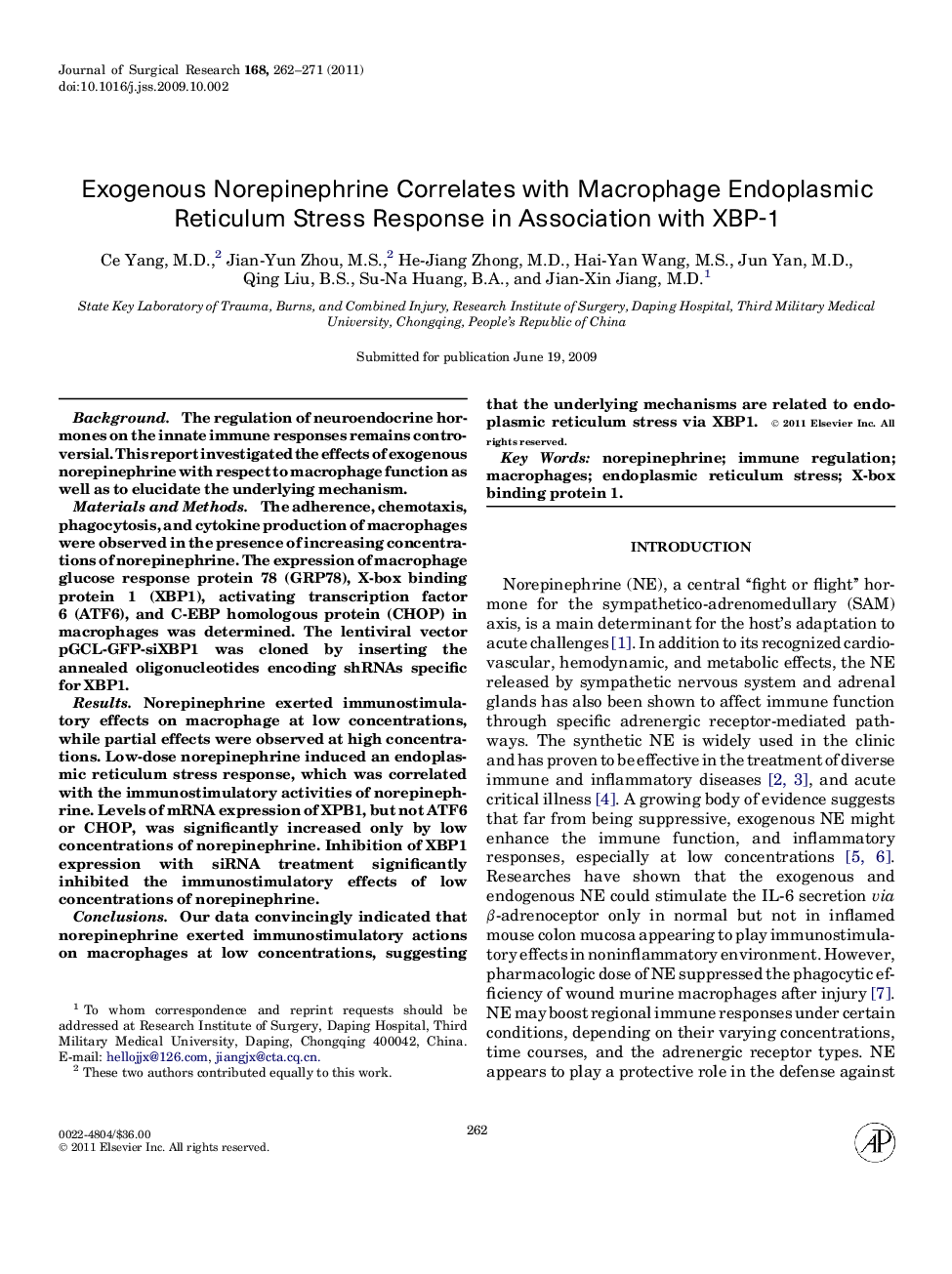| Article ID | Journal | Published Year | Pages | File Type |
|---|---|---|---|---|
| 4302488 | Journal of Surgical Research | 2011 | 10 Pages |
BackgroundThe regulation of neuroendocrine hormones on the innate immune responses remains controversial. This report investigated the effects of exogenous norepinephrine with respect to macrophage function as well as to elucidate the underlying mechanism.Materials and MethodsThe adherence, chemotaxis, phagocytosis, and cytokine production of macrophages were observed in the presence of increasing concentrations of norepinephrine. The expression of macrophage glucose response protein 78 (GRP78), X-box binding protein 1 (XBP1), activating transcription factor 6 (ATF6), and C-EBP homologous protein (CHOP) in macrophages was determined. The lentiviral vector pGCL-GFP-siXBP1 was cloned by inserting the annealed oligonucleotides encoding shRNAs specific for XBP1.ResultsNorepinephrine exerted immunostimulatory effects on macrophage at low concentrations, while partial effects were observed at high concentrations. Low-dose norepinephrine induced an endoplasmic reticulum stress response, which was correlated with the immunostimulatory activities of norepinephrine. Levels of mRNA expression of XPB1, but not ATF6 or CHOP, was significantly increased only by low concentrations of norepinephrine. Inhibition of XBP1 expression with siRNA treatment significantly inhibited the immunostimulatory effects of low concentrations of norepinephrine.ConclusionsOur data convincingly indicated that norepinephrine exerted immunostimulatory actions on macrophages at low concentrations, suggesting that the underlying mechanisms are related to endoplasmic reticulum stress via XBP1.
